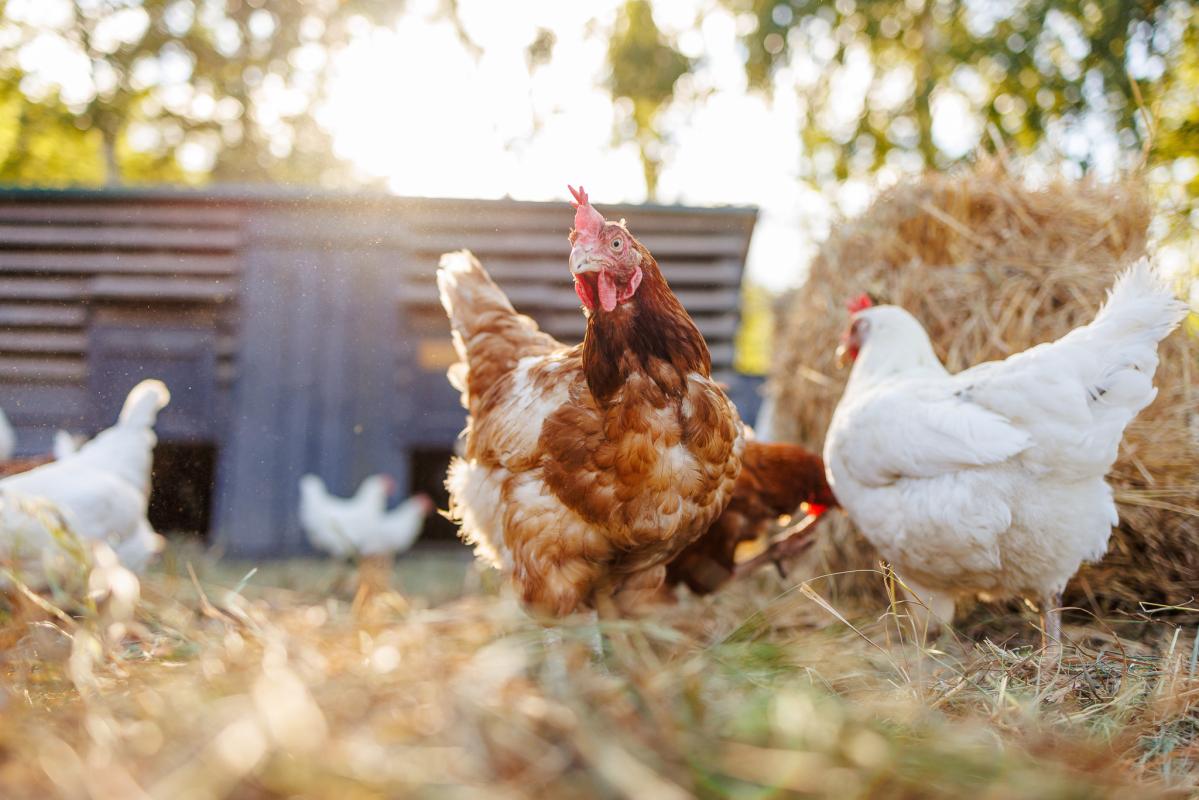
Bird flu, or avian influenza, is a serious viral disease that can affect both wild and domestic birds. With recent outbreaks of bird flu in the UK, including cases confirmed by Defra, it is crucial for poultry owners to stay informed and take appropriate measures to protect their flocks when rearing poultry.
What is bird flu?
Bird flu is caused by strains of the influenza virus that primarily affect birds. While most strains pose little threat, highly pathogenic avian influenza (HPAI) can cause severe illness and high bird mortality rates. Occasionally, bird flu can transmit to humans, though this is rare. Staying vigilant is essential to minimise the risk to both birds and people.
During periods of heightened risk, Defra may declare an Avian Influenza Prevention Zone (AIPZ) to reduce the spread of bird flu. When an AIPZ is in place, all bird keepers, whether they have a large commercial farm or a small backyard flock, must adhere to specific requirements. Details on Defra’s AIPZ controls.
Bird flu virus symptoms
Knowing the signs of avian bird flu is vital for early detection. Symptoms of the bird flu virus in poultry include:
- Sudden and unexplained death of birds
- Swelling of the head, comb, or wattles
- Respiratory issues such as coughing, sneezing, or abnormal sounds
- Lethargy or unresponsiveness
- Changes in movement (e.g. dragging of legs and drooping of the winds)
- Sudden increase or decrease in water consumption
- Drop in egg production or misshapen eggs
- Discoloured wattles and legs
- Changes in body temperature
If you notice any of these symptoms, it is critical to report them immediately to Defra via their helpline. Delayed reporting could lead to the disease spreading further, posing a risk to other poultry farms in your area.
How to prevent bird flu
Defra frequently enforces mandatory housing orders during bird flu outbreaks in the UK. Ensure your birds are kept indoors or under netting to reduce contact with wild birds. Farmers and poultry keepers must adopt stringent biosecurity measures to prevent the spread of bird flu. Here are some key biosecurity measures to consider:
- Disinfecting footwear and equipment regularly
- Restricting access to your poultry area
- Using dedicated clothing and gloves when handling birds
- Feed and water precautions: Keep feed and water sources indoors or covered to avoid contamination by wild birds
- Wild bird deterrence: Minimise the presence of wild birds near your flock by removing standing water and clearing food scraps
- Monitoring health: Conduct regular health checks on your flock. Any unusual behaviour or symptoms should be reported promptly
What to do if you suspect bird flu
If you suspect an outbreak of bird flu on your farm, you must act quickly. Contact Defra’s Rural Services Helpline immediately and follow any instructions from veterinary authorities regarding isolation and testing. Remember to avoid moving poultry, eggs, or equipment off your premises until advised it is safe.
Can bird flu affect humans?
While the transmission of bird flu to humans is rare, certain strains can pose a risk. To protect yourself:
- Wear appropriate protective equipment when handling sick or dead birds.
- Avoid direct contact with bird faeces or secretions.
- Wash hands thoroughly after handling poultry or equipment.
For the most up-to-date advice on avian bird flu in the UK, consult Defra’s official website or contact your local veterinary services. By staying vigilant and implementing strict biosecurity measures, poultry owners can play a vital role in safeguarding their flocks and preventing the spread of bird flu.
Regularly monitor updates from Defra and local authorities for the latest guidance on bird flu in the UK. Together, we can help protect the health of our poultry and prevent future outbreaks.
Five tips from StowAg's team

- Improve sanitation: Solutions, such as our Stalosan® F broad spectrum hygiene powder, destroys worm eggs, coccidial oocysts, fly eggs and larvae. Anti-bacterial, anti-fungal, anti-viral and highly absorbent, this option will also help to reduce the ammonia smell created by the chicken's droppings.
- Keep high-traffic areas clean: Adding a Wellington boot washer and disinfectant foot hygiene station to your farm provides a complete all-in-one biosecurity station, greatly reducing the spread of infectious disease.
- Enclose Poultry Areas: Ensure that coops, runs, and outdoor areas are fully enclosed with sturdy netting or wire mesh. Regularly inspect these barriers for any holes or gaps that could allow wild birds to enter. This will prevent contact between wild birds and your poultry.
- Animal health: Ensuring the well-being of your chickens is the first line of defense against bird flu, so regular health checks are essential. Monitor your flock closely for any signs of illness, such as changes in behaviour, appetite, or physical appearance. If you notice any unusual symptoms or have concerns about your chickens' health, don’t hesitate to speak to our animal health experts.
- Keep informed: Staying informed is a key part of protecting your flock against potential threats like bird flu. It's important to regularly check for updates from your local DEFRA (Department for Environment, Food & Rural Affairs) office, as they provide timely advice and guidance tailored to your area's specific conditions.
